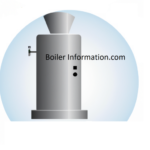Industrial boilers are essential pieces of equipment for many businesses. They provide hot water and steam for a variety of industrial processes, and can significantly reduce the cost of energy for a company. However, the efficiency of an industrial boiler can vary greatly depending on its design, size and type. In order to ensure that a company is getting the most out of their boiler, it is important to understand how efficiency ratings work.
Efficiency ratings for industrial boilers are based on the amount of energy that can be converted into usable heat energy. The higher the rating, the more efficient the boiler will be. Ratings are usually expressed as a percentage, with higher numbers indicating more efficient boilers. The rating of an industrial boiler is determined by its thermal efficiency, which is a measure of how well it converts energy into usable heat.
When shopping for an industrial boiler, it is important to consider the efficiency rating. Boilers with higher ratings will cost more initially, but they can save a considerable amount of money in the long run as they will use less energy to produce the same amount of heat. It is also important to consider the size and type of boiler being purchased. A large boiler will be more efficient than a smaller one, and certain types of boilers are more efficient than others.
In order to ensure the best efficiency ratings for an industrial boiler, it is important to have it properly maintained. This includes cleaning the boiler, inspecting and replacing worn parts, and making sure that all of the components are properly connected. Regular maintenance will ensure that the boiler runs at peak efficiency and saves money in the long run.
Efficiency ratings are an important factor to consider when choosing an industrial boiler. By taking the time to research and understand how ratings work, companies can make sure that they are getting the most out of their boiler and saving money in the process.
